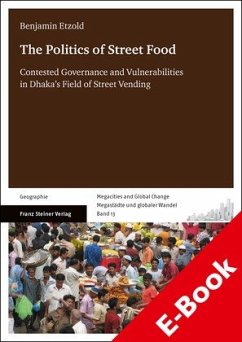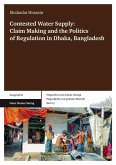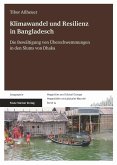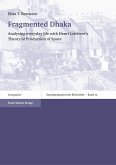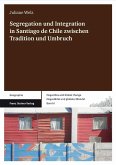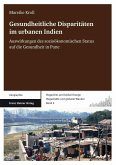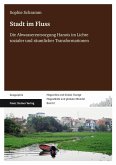In Bangladesh, the sale of food in public space is often contested: Street food is needed, but not wanted. 100,000 street vendors sell dishes, snacks, fruits, and beverages in the megacity of Dhaka. Street food is important for urban food security as mobile labourers and the poor rely on cheap, readily available and nutritious food. The authorities argue that encroachments of streets and footpaths are illegal and disorderly, and that street food is unhygienic. They therefore evict the vendors regularly. But the hawkers are somewhat protected through the informal rules of the street. While some of them are highly vulnerable to poverty and police raids, most navigate well through these contested governance regimes and can successfully sustain their livelihoods.
In this e-book, different conceptual perspectives are integrated on the basis of Bourdieu's Theory of Practice. It provides fresh insights into the role of street food in urban food system and contributes to a deeper understanding of the vulnerabilities of the urban poor, the informal governance of public space, and the dominant discourses on street food. From a relational and critical perspective it captures 'the politics of street food' and sketches innovative solutions towards fair street food governance.
Dr. Benjamin Etzold is a research associate and lecturer in the Department of Geography at the University of Bonn. He holds a PhD in Geography and a Diploma degree in Geography, Sociology and Political Science. He conducted his PhD research in Dhaka on street vendors, food security and contested urban governance within the programme 'Megacites-Megachallenge: Informal Dynamics of Global Change', funded by the German Research Foundation. He was also part of the UNU-EHS/CARE-research project 'Where the Rain falls', in which the relations between rainfall variability, food security and migration were investigated in northern Bangladesh.
His broader research interests are nested in the fields of social geography, political geography, development studies, migration studies and urban studies. As a lecturer, he teaches courses in development geography, migration and globalization, social geography, and empirical research methods.
In this e-book, different conceptual perspectives are integrated on the basis of Bourdieu's Theory of Practice. It provides fresh insights into the role of street food in urban food system and contributes to a deeper understanding of the vulnerabilities of the urban poor, the informal governance of public space, and the dominant discourses on street food. From a relational and critical perspective it captures 'the politics of street food' and sketches innovative solutions towards fair street food governance.
Dr. Benjamin Etzold is a research associate and lecturer in the Department of Geography at the University of Bonn. He holds a PhD in Geography and a Diploma degree in Geography, Sociology and Political Science. He conducted his PhD research in Dhaka on street vendors, food security and contested urban governance within the programme 'Megacites-Megachallenge: Informal Dynamics of Global Change', funded by the German Research Foundation. He was also part of the UNU-EHS/CARE-research project 'Where the Rain falls', in which the relations between rainfall variability, food security and migration were investigated in northern Bangladesh.
His broader research interests are nested in the fields of social geography, political geography, development studies, migration studies and urban studies. As a lecturer, he teaches courses in development geography, migration and globalization, social geography, and empirical research methods.
Dieser Download kann aus rechtlichen Gründen nur mit Rechnungsadresse in A, B, BG, CY, CZ, D, DK, EW, E, FIN, F, GR, HR, H, IRL, I, LT, L, LR, M, NL, PL, P, R, S, SLO, SK ausgeliefert werden.

